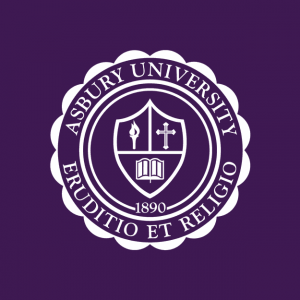Message to the Asbury Community
June 1, 2020
 Greetings Asbury Community,
Greetings Asbury Community,
Like so many others in the United States, I have been processing the sad and senseless deaths of black Americans and the underlying reality of racism. Reading the details associated with recent events—specifically the deaths of George Floyd and Ahmaud Arbery—I go numb, unable to fully comprehend the loss, the hurt, the sense of injustice, and the sadness this must bring to our black and brown brothers and sisters, and even more to our Creator. And while these events may impact each of us differently, we know that we have members of our own community who are experiencing fear, deep grief, and pain.
In his magnum opus, “The City of God,” St. Augustine recognized that Christians have both an earthly home and a heavenly home. Yet while we have dual residencies, Augustine was clear that we do not have dual citizenship. As Paul writes in Philippians: “[O]ur citizenship is in heaven, and it is from there that we are expecting a Savior, the Lord Jesus Christ” (Phil. 3:20; NRSV).
We are occupants of a particular society at a particular time; but as Christians, our citizenship is in heaven, where the Savior of the world resides. We are, says Paul, “citizens with the saints” (Eph. 2:19; NRSV).
- As citizens of heaven, we acknowledge the members of our own community who are sad, hurt, and afraid.
- As citizens of heaven, we lament the tragic and senseless loss of life.
- As citizens of heaven, but as people who reside on earth, we recognize that we are born into a story. Sadly, this story includes a complicated history of structural injustice, discrimination, and racism.
- As citizens of heaven, we recognize the Imago Dei stamped upon all human beings—making us, in John Wesley’s famous expression—“relationally constituted” with one another.
- As citizens of heaven, we affirm God’s kingdom reality where every tribe, tongue, and nation stand in a communal expression of worship unto our Creator.
I am certainly not the first to respond to some of these recent events, nor will I be the last. However, I want to humbly add a few important considerations to this conversation.
First, as I mentioned, we have members in our community who are hurting and afraid. We endeavor to stand by them in acts of support, love, and hospitality. As the body of Christ (I Cor. 12:12-30), a harm to anyone in our community is a tear in our communal fabric and a threat to us all.
Second, I write this letter not simply as an American, and not simply as a college administrator. I write this as a Christian. In Ephesians 2:10(a), Paul says, “For we are what he has made us…” (NRSV). God made us. We are His creation. We must lament and name the harm to God’s “handiwork” (2:10a; NIV). When confronted with darkness, the invitation and the challenge to the Christian is to overcome evil with good (Romans 12:21).
Finally, in an age where the wind blows toward inflammatory rhetoric and political polarization, let us commit to more proactively being ambassadors of hope, peace, and truth spoken in love. Without the latter, we are a “resounding gong or a clanging cymbal” (I Cor. 13). The world needs holy, upright, clear-minded Jesus followers. When others see us, may they see Jesus.
Today’s cultural landscape has no shortage of immorality, darkness, and injustice. These recent events reflect this sad reality. So, let me end with this specific note. To the black and other intercultural members of our community—our staff, faculty, students, alumni, and friends of Asbury—I am sorry. As citizens together in the kingdom of heaven, we stand with you in grief and lament.
May God’s Holy Spirit truly set us apart in our minds, our words, and our actions.
God bless you all,
Kevin J. Brown
President, Asbury University